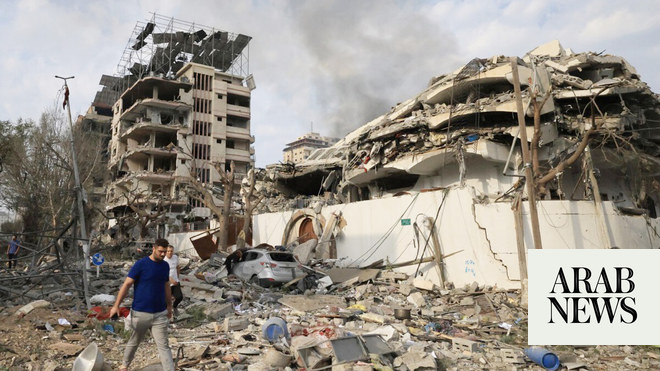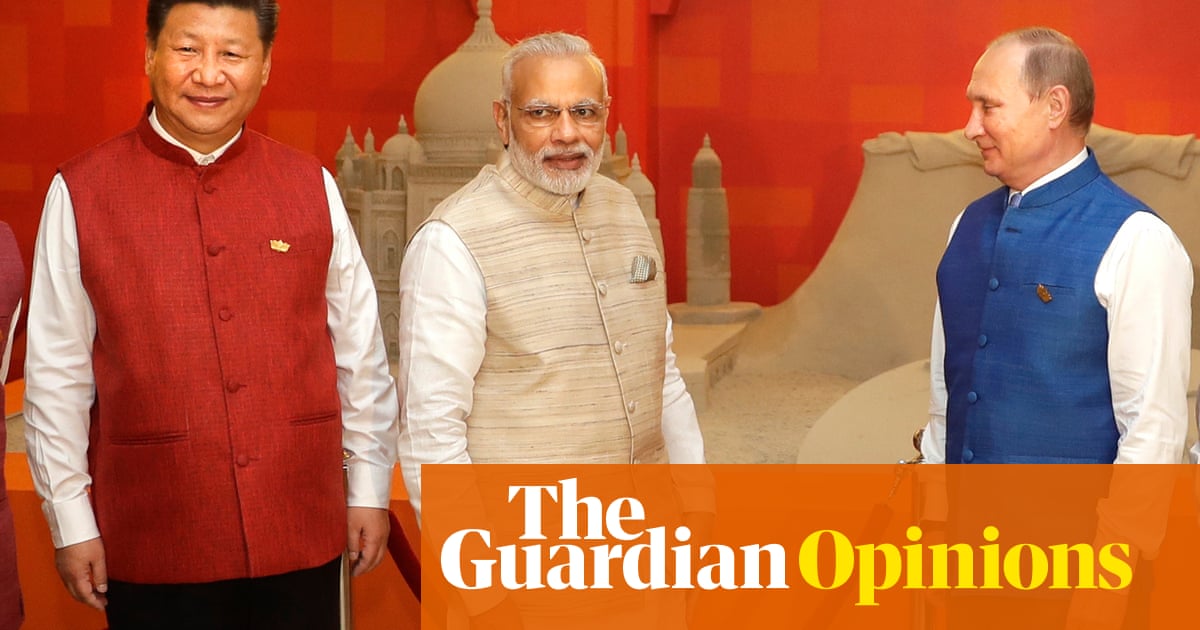
ABU DHABI: As Max Verstappen overtook Lewis Hamilton on the last lap of the final Formula One Grand Prix race of the season at a frenetic and fever-pitched Yas Marina Circuit last weekend, there was a palpable, collective sense of being present at a moment of sporting history.
The thrilling climax of the 2021 F1 World Championship provided a somewhat contentious spectacle, and yet a moment undoubtedly for the ages.
From the masses of team personnel and event staff to the thousands of spectators present, including plenty of jubilant Dutch fans (or should I say Verstappen’s Orange Army), each and every individual gathered around the 5.28 kilometer, redeveloped circuit now has a remarkable tale to tell about how they were there as “The Decider in the Desert” played out.
A first world title for Verstappen signaled the end of a quite stunning week in Abu Dhabi, a week when Yas Island lived up to its “Yas Vegas” nickname.
It exploded into life as a capacity crowd descended on the island from around the world and was greeted with live music and a wide variety of entertainment from some of the world’s most renowned artists.
All of this against the backdrop of a thrilling finale to one of the most extraordinary F1 seasons. In the UK, the UAE is widely perceived as a popular holiday destination, known for its large expat population and, indeed, as a playground for the rich.
It may have a long-standing reputation for luxury and a warm climate, but now the country is also firmly establishing its status as a global sporting hub. Last month, Abu Dhabi was named the Middle East’s Leading Sports Tourism Destination of 2021 at the 28th Annual World Travel Awards.
Based on my experiences over the past few months, this came as no surprise whatsoever. I flew to the UAE in October, initially to cover the ICC Men’s T20 World Cup, and regularly traveled with fellow media professionals from England up and down Sheikh Zayed Road between Abu Dhabi, Dubai and Sharjah.
Four weeks and 45 matches involving the major cricketing nations of the world. Nice gig. Nice experience. But that was just the starter on my sporting menu.
A few days after Australia won that tournament, Season 5 of the Abu Dhabi T10 began, featuring some of the big names in world cricket. If we also consider the UAE leg of the Indian Premier League in September and October, many of the very best international cricketers were based in the Emirates for almost a quarter of the year.
Away from the constant spectacle of cricket during my two months in the UAE, the thing that most captured my attention was the sheer flurry and variety of sporting events taking place.
UFC Fight Island, a series of Ultimate Fighting Championship mixed martial arts events, a concept created in 2020 during the early stages of the pandemic, returned to Yas Island in late October this year.
The DP World Tour Championship took place in November at Jumeirah Golf Estates in Dubai, marking the conclusion of the European Tour’s Race to Dubai, the prize awarded to the player who accumulates the most points during the season. And the Emirates Airline Dubai Rugby Sevens, arguably the UAE’s best-known sporting event, hosted more than 80,000 fans this month over the 50th National Day weekend.
During the two weeks leading up to the Grand Prix, those of us in the media were based on Yas Island, commuting daily to and from Zayed Cricket Stadium. From a distance, you’d be forgiven for thinking that it sits on the sand like a starship that has landed in the desert.
Yet within its shadows lie a stunning array of high-class sporting facilities, not the least of which is the Zayed Cricket Academy. Not a day or night went by without us seeing or getting involved with the wide spectrum of community sport in action, whether it was late-night soccer matches, basketball sessions or trying out the new craze of padel, a racket sport with some similarities to tennis.
You name it, they had it, we played it.
As the F1 season reached the region in its final weeks, with races in Qatar and Saudi Arabia before the UAE finale, Yas Island began to buzz with activity.
In our hotel, regular prices shot up fivefold for the week of the race — no surprise when you could pop down for breakfast and watch the Red Bull and Ferrari entourages take up much of the available space, or even have the pleasant surprise, as we did, of sitting next to driver Charles Leclerc at the restaurant.
It was all part of the surreal experience as all eyes turned to Abu Dhabi and Yas Island. For one weekend this man-made island became the focus of the sporting world, as this titanic battle between two men, at opposite ends of their careers, to create sporting legacies played out: Hamilton, the elder and experienced statesman; Verstappen, the young, unfazed challenger.
When Verstappen was born in 1997, the Middle East did not have a race on the F1 calendar. In fact, when Hamilton first started driving in F1 in 2007, Abu Dhabi did not even have a circuit.
Such is the growing influence now of the region on the sport and its future, four of next season’s races will take place in the Gulf, in Bahrain, Saudi Arabia, Qatar and the UAE.
As Verstappen’s car roared past the checkered flag on the final straight in front of a raucous main grandstand, and a visceral roar of emotional celebration emerged from the Red Bull paddock, the moment ensured that Abu Dhabi will be remembered in the annals of F1 history as the scene for one of its most memorable chapters.
It was sporting theater of the highest order. With the signing of a new 10-year deal, the Abu Dhabi Grand Prix will remain the final race of the F1 season at least until 2030, and so everyone can look forward to doing it all again and again.
I flew to the UAE with no plans to attend the Grand Prix but after the memories created last week, it is safe to say that I certainly plan to return. As I left the UAE for Doha, and the culmination of the FIFA Arab Cup, Abu Dhabi was welcoming international swimmers arriving for the 15th FINA World Swimming Championships, as well as the likes of Rafael Nadal and Andy Murray for the annual Mubadala World Tennis Championship.
In February, the best soccer club sides from each continent, including Chelsea and Palmeiras, will travel to the city for the FIFA Club World Cup, further cementing the status of Abu Dhabi as a global sporting hub.
And ahead of the biggest show of all, next year’s FIFA World Cup in Qatar, there is a genuine belief now that the region, collectively, has established a reputation as an epicenter for showpiece international sporting events.












